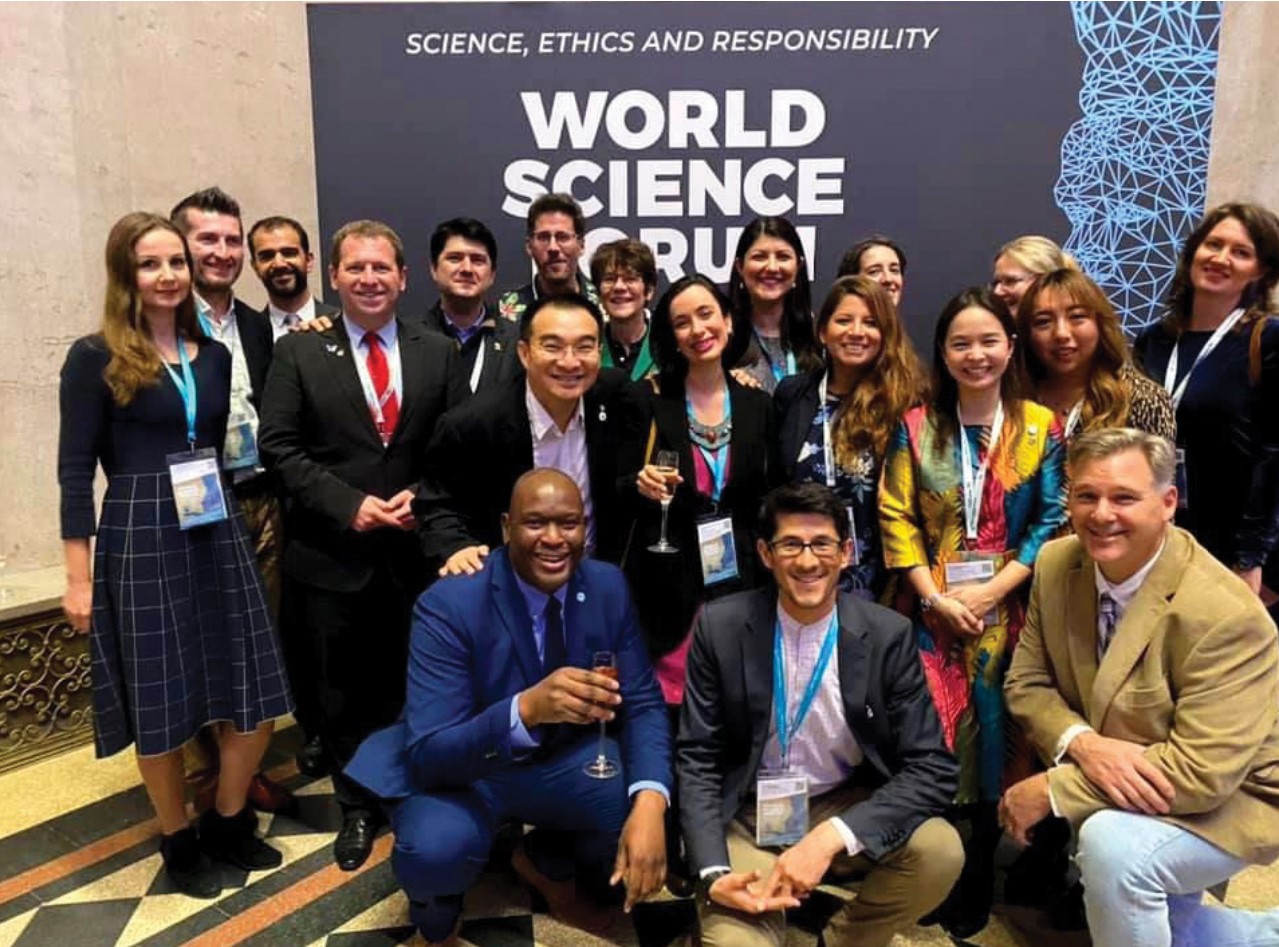Events - Newsletter September 2020
NEWSLETTER
THE WORLD SCIENCE FORUM (WSF) 2019: INNER REFLECTIONS AND OUTER PROJECTIONS1
The WSF 2019 in Budapest harnessed some compelling energies to look inside basic background principles and to discuss the current challenges and potentialities of knowledge-based science. It focused on the following: what brings us together (beyond scholarly disciplines and cross-border circumstances); capacity building and systemic analysis; Sustainable Development Goals (SDGs) road mapping; science empowered as a right in inclusive societies; and bringing research back to our communities.

1 My participation in this event was possible thanks to the support of the Marie Curie Alumni Association (MCAA).
The main slogan of this year’s edition, ‘Science, ethics and responsibility,’ was evoked in conversations on how progress is defined by building trust, with the ultimate objective of consolidating science for peace.
The commitment of science to overcome borders and to integrate regional cooperation elements felt very close to my own MSCA-GF project NAVSCHEN, devoted to looking back in history to improve global human mobility rights policy making. As a Member of the Global Young Academy (GYA), I also joined the GYA team at the WSF, which launched its 'Declaration on the Guiding Principles of Young Academies,' with a special focus on common research ethics’ benchmarks by National Young Academies.
The WSF also offered a space for critical stances beyond well-intended declarations of intentions. These included the following:
- an invitation to realise that other, very impactful, actors have very different agendas (e.g. Javier García, IUPAC);
- an awareness of the challenging identity issues raised by intercultural science communication and the promising features of science diplomacy in this direction;
- a willingness to prioritise liveability, quality of life, and human development over mere economic growth as an end in itself (echoing New Zealand’s current political debates);
- a capacity to take into account the disruptive effects of AI, biotechnology and big data;
- an acknowledgement of the transformative impact of STEM, but the need to keep very present the Humanities and Social Sciences to prevent movement without direction (and objectives without methodologies) - from creating ‘a hole in the ground’ and the role of intergenerational languages to bringing human societies together around crucial global priorities for a sustainable future.
On the flip side (and despite some actionable feedback from especially committed players), the WSF 2019 erred on the side of a rhetoric sacralisation of few particular figures and discourses, which were, in turn, not that ground-breaking or determinant in talking truth to power. Also, during the last day’s sessions in the Parliament, organisers decided not to take questions from the public, and the final ‘Declaration’ was presented without open discussion or amendments. This gate-keeping approach left a bitter after-taste to many participants, who understand democracy as a dialogue and research as an open conversation. In the end, the question of how to trigger and introduce positive societal impact through irreversible, democratic processes remains open.
Special thanks are to be given to those brave local scholars who openly talked with international participants about their challenges. Their experiences served as a warning for ‘the shape of things to come’ elsewhere, unless we take silencing of many research strands very seriously and decide that we cannot be spectators but need to become actors. The silver lining is that we can act decisively by using the combined knowledge of our ‘languages of the mind’, without forgetting that it is also up to us to invent the future.

MCAA NORTH AMERICA CHAPTER CHAIR
UNIVERSITY OF PITTSBURGH (USA)/
CA’ FOSCARI UNIVERSITY OF VENICE (ITALY)